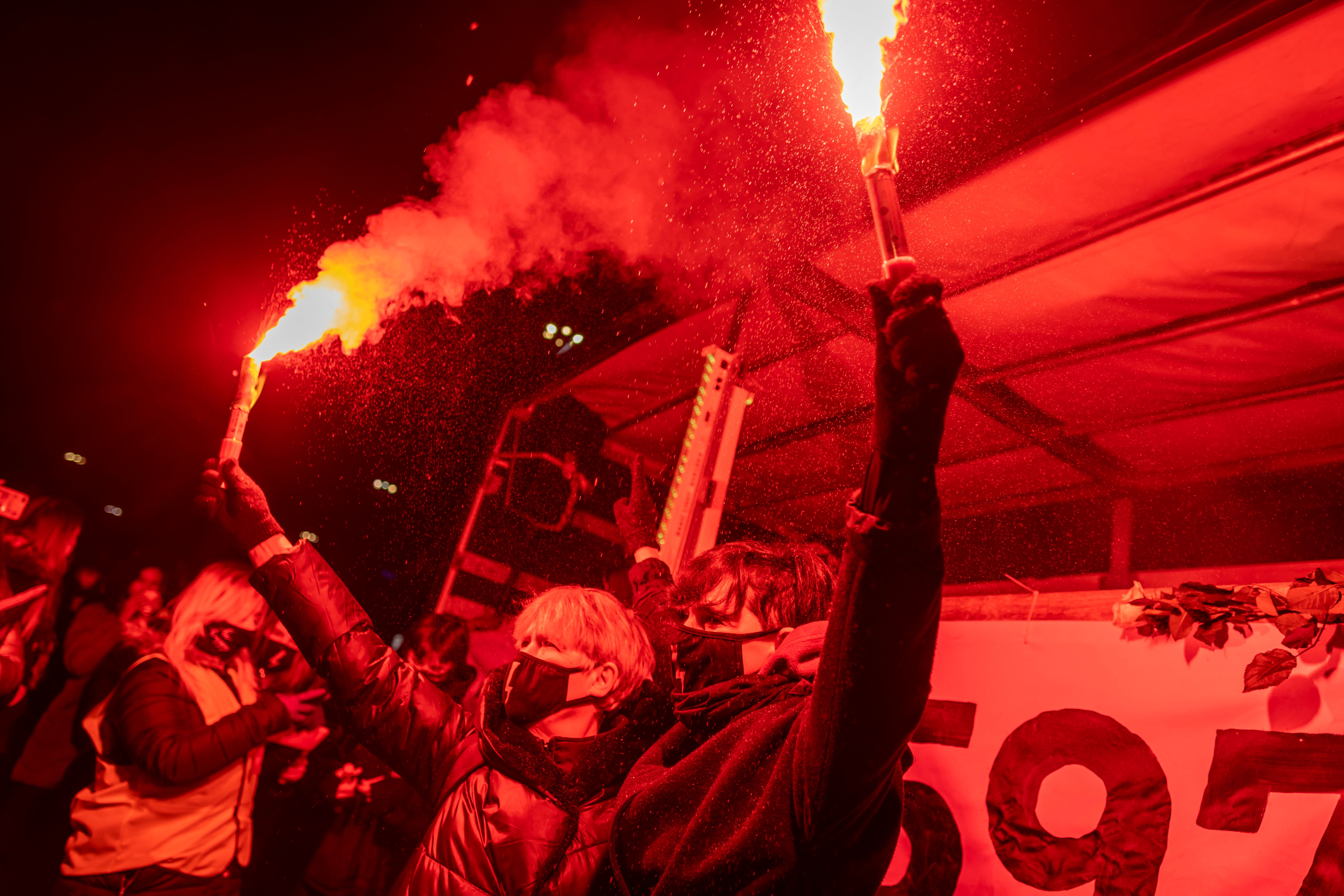Belgium becomes first country to fund abortions for Polish women struggling under near-total ban
Poland further tightened the nation’s already highly restrictive abortion laws last Autumn

The Belgian government has announced it will become the first country in the world to fund abortions for women in Poland who are unable to access procedures in the wake of the country’s near-total abortion ban.
Poland further tightened the nation’s already highly restrictive abortion laws last October - triggering the largest protests in the country since the collapse of communism.
Under the new laws, it is now illegal to have an abortion in cases where there are foetal defects. Before that, although terminating a pregnancy has long been illegal in Poland, foetal abnormalities were one of the exceptions where an abortion was permitted, along with cases of rape, incest, or where the mother’s life is at risk.
The Belgian government, which made the announcement on the International Day for Safe Abortion, will provide financial support for women who are forced to make the trip from Poland to another country to have their pregnancy terminated.
Belgium’s minister of health and the junior minister for gender equality announced they will provide €10,000 funding to Abortion Without Borders, an organisation that delivers financial help and advice for people in Poland seeking an abortion.
In October last year, the Polish government ruled some 98 per cent of the 1,000 to 2,000 legal abortions occurring in the nation were “unconstitutional”.
Abortion Without Borders said the service has been contacted by 17,000 people pursuing help in the six months following the ruling and is still receiving around 800 calls each month.
Mara Clarke, a member of Abortion Without Borders, said: “This support is a true act of solidarity. We are thrilled to see our friends in Belgium extend their hands across borders to help people forced by punitive governments to travel for abortion care.
“While the situation for people who need abortions in Poland has been dire since 1990, the ruling made in October 2020 and published in January 2021 has made things even worse. The number of people needing our support has doubled.”
Ms Clarke, who founded the Abortion Support Network, said she is “hopeful” other countries around the world will “follow Belgium’s lead.”
While Natalia Broniarczyk, a fellow member of Abortion Without Borders, said: “For almost 30 years, abortions in Poland have only happened because people find a way to have them outside of what the government ‘allows’.
“Solidarity was shown by the Belgian government, which not only encourages people in Poland to travel to Belgium to access them, but also provides funds to cover the costs of abortion and travel.”
Sarah Schlitz, the Belgian junior minister for gender equality, said their funding will pay for the cost of having a pregnancy terminated in a European country for women who are unable to afford to do so.
“Access to abortion is a fundamental right that must be ensured by every democratic state. It allows women to own their own bodies, protect their health, and not be forced to give up life opportunities,” she added.
Before the government recently changed the rules on abortions, the majority of the tiny number of legal abortions which occurred in the predominantly Catholic nation were cases of foetal defects.
Speaking toThe Independent about Poland’s near-total abortion ban at the beginning of the year, Antonina Lewandowska, an abortion rights activist based in Warsaw, said: “It amounts to torture in the middle of Europe. This is about forcing women to give birth to a foetus that won’t survive or will be born with a severe disability for the rest of its life. It may not have several body parts - children are sometimes born without eye sockets. It is a nightmare.“
Ms Lewandowska, who works for the Federation of Women and Family Planning, a Polish NGO which works with the United Nations and the European parliament, said in some cases parents will be raising a child who cannot speak or move and has no brain consciousness, as she warned the government had “sentenced women” to torture.
Subscribe to Independent Premium to bookmark this article
Want to bookmark your favourite articles and stories to read or reference later? Start your Independent Premium subscription today.

Join our commenting forum
Join thought-provoking conversations, follow other Independent readers and see their replies